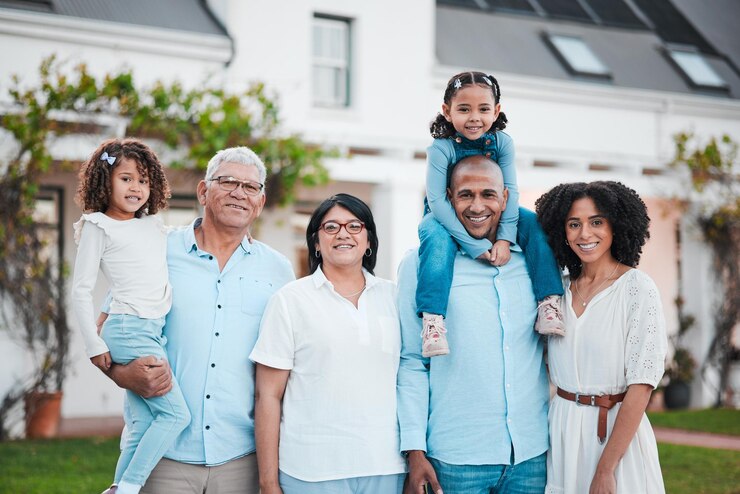Introduction
In our increasingly interconnected and diverse world, multicultural families are becoming more prevalent. These families bring together individuals from different cultural backgrounds, creating a rich tapestry of traditions, customs, and values. In this context, the role of fathers in embracing and nurturing different traditions is vital. Fathers play a significant role in fostering an environment of cultural appreciation and understanding within their multicultural families. In this article, we will explore the importance of fathers in embracing and celebrating different traditions in multicultural families, promoting a sense of belonging, and cultivating a diverse and inclusive family environment.
- Embracing Cultural Diversity
Fathers are instrumental in setting the tone for accepting and appreciating cultural diversity within their families. By embracing their own cultural heritage and demonstrating respect for their partner’s culture, fathers create a space where different traditions can coexist harmoniously. They can actively engage in learning about and participating in various cultural practices, such as celebrating festivals, observing rituals, or preparing traditional foods. Embracing cultural diversity helps children develop a strong sense of identity and pride in their multicultural heritage.
- Encouraging Intergenerational Bonding
Fathers can facilitate intergenerational bonding by connecting their children with their grandparents and extended family members who carry rich cultural traditions. By organizing family gatherings, reunions, or visits to their ancestral homelands, fathers provide opportunities for their children to engage with their cultural roots and develop meaningful connections with their extended family members. These experiences enable children to learn firsthand about their cultural heritage, values, and customs.
- Promoting Cultural Education
Fathers can actively engage in educating their children about different cultures. They can share stories, legends, and histories associated with their cultural backgrounds, thereby instilling a sense of pride and curiosity in their children. Additionally, fathers can introduce their children to books, movies, music, and art from various cultures, broadening their understanding and appreciation of different traditions. By promoting cultural education, fathers foster open-mindedness, empathy, and respect for diversity in their children.
- Creating Blended Traditions
Multicultural families provide a unique opportunity to create blended traditions that reflect the diverse heritage of both parents. Fathers can collaborate with their partners and children to develop new customs and rituals that incorporate elements from both cultural backgrounds. This process of blending traditions encourages creativity, adaptability, and inclusivity within the family. It also promotes a sense of belonging and ownership for children, as they contribute to the creation of unique family traditions.
- Encouraging Intercultural Dialogue
Fathers can facilitate open and respectful dialogue within their multicultural families. They can encourage their children to ask questions, share their experiences, and explore the similarities and differences among their respective cultural backgrounds. Fathers can serve as mediators in conversations that promote understanding, tolerance, and appreciation of diverse perspectives. Through intercultural dialogue, fathers create an environment where children feel comfortable discussing their cultural identities and fostering a sense of unity within their diverse family.
- Engaging in Community and Cultural Events
Fathers can actively participate in community and cultural events that celebrate different traditions. Attending festivals, cultural exhibitions, and community gatherings provides opportunities for fathers and their children to interact with individuals from various cultural backgrounds. Such engagements broaden their understanding of different customs, foster connections with the broader community, and promote a sense of belonging within the multicultural fabric of society.
Conclusion
In multicultural families, fathers play a crucial role in embracing and nurturing different traditions. By embracing cultural diversity, encouraging intergenerational bonding, promoting cultural education, creating blended traditions, encouraging intercultural dialogue, and engaging in community and cultural events, fathers foster an environment that celebrates and appreciates the richness of multiculturalism. By actively engaging in these practices, fathers help their children develop a deep sense of cultural identity, respect for diversity, and an open-minded perspective. Through their involvement, fathers contribute to the cultivation of inclusive, harmonious, and thriving multicultural families that value and embrace different traditions.










